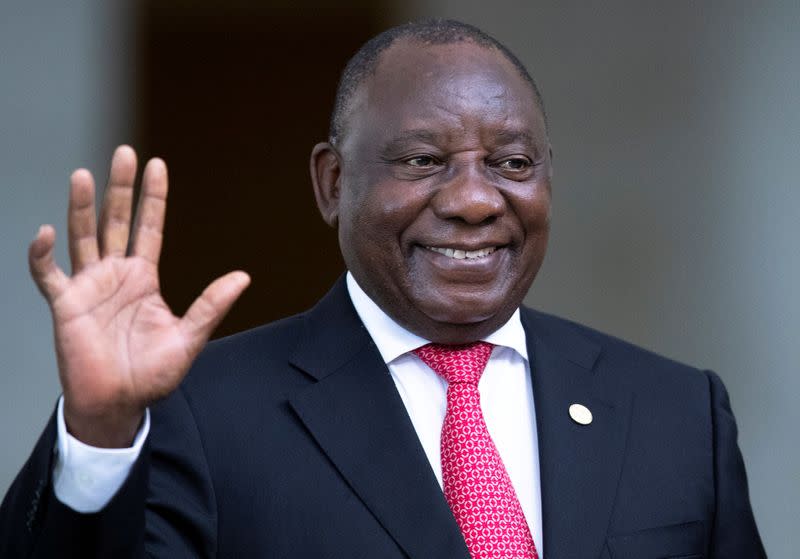South Africa's Ramaphosa vows 'drastic' steps to save state companies

By Mfuneko Toyana and Nqobile Dludla
JOHANNESBURG (Reuters) - South Africa plunged deeper into darkness and its growth outlook dimmed with utility Eskom announcing unprecedented levels of blackouts on Monday, just as President Cyril Ramaphosa said he would take "drastic" steps to turnaround state firms.
Earlier, his transport minister appointed an independent adviser to manage the country's passenger rail firm, just days after a decision to place South African Airways (SAA) into business rescue - a form of bankruptcy protection.
Cash-strapped and heavily indebted, state companies including SAA, Eskom, defence firm Denel and Passenger Rail Agency South Africa (Prasa) have become a major headache for Ramaphosa as he seeks to reverse years of stagnant growth.
State energy company Eskom said it would cut up to 6,000 megawatts (MW) of power from the national grid after heavy rain and flooding triggered failures at its 4,800 MW Medupi plant, disrupting supplies to businesses and households across the country.
The cut is the largest since Eskom introduced a programme of rolling blackouts, known locally as load-shedding, in 2008, rattling already shaky investor sentiment towards the country.
Medupi is one of South Africa's newer coal-burning plants which, along with the Kusile Power Station, were touted as a solution to the country's woes when construction began a decade ago.
But both mega projects, the largest of their kind in the southern hemisphere, have been plagued by mismanagement, unplanned breakdowns and ballooning costs.
"The situation at Medupi, the engineering and design problems are very serious, said Ted Blom, an energy expert and a former Eskom manager. "At Kusile, the situation is even more dire."
GROWTH HIT
Data last week showed gross domestic product (GDP) in the third quarter shrank 0.6%, the second contraction this year, as mining, manufacturing and agriculture were hit hard by a combination of low demand and the uncertainty over power supply.
The poor data print means GDP is unlikely to reach even the national treasury's sharply lowered forecast of 0.5%, increasing instead the likelihood of the country losing its last investment grade credit rating by early 2020.
"It's clearly a full-blown crisis now, for Eskom and the economy. This past week of load shedding will drag growth into a recession," said independent political economy analyst Daniel Silke.
Petra Diamonds Ltd <PDL.L> said on Monday it was in the process of halting operations at its Cullinan, Finsch and Koffiefontein mines after Eskom asked the miner to reduce its electricity load.
"There's been precious little communication from the president's office or from senior cabinet ministers over the last five days. It really undermines the simultaneous efforts to reform SAA and Prasa because international investors will be focussing on Eskom," Silke said.
BUSINESS RESCUE
The decision to place SAA into business rescue was the "only way to secure its survival", Ramaphosa said in his weekly newsletter on Monday, adding that the move demonstrated the government's resolve.
"We will not allow any of these strategic entities to fail. Rather, we need to take all necessary steps – even drastic ones – to restore them to health," he said.
But the struggling state firms are being kept afloat with bailouts that the government is growing increasingly reluctant to grant.
SAA has been on the brink of collapse since a crippling strike last month left it without enough money to pay salaries on time and two major travel insurers stopped covering its tickets against the risk of insolvency.
Eskom, which produces more than 90% of the country's power, is also surviving on government money, with the treasury granting it 69 billion rand ($4.69 billion) in 2019 alone.
(Writing by Joe Bavier and Mfuneko Toyana; Editing by Muralikumar Anantharaman, Emelia Sithole-Matarise, Kirsten Donovan)
